Do Cashews Contain Calcium? How Much Calcium Is In Cashews?
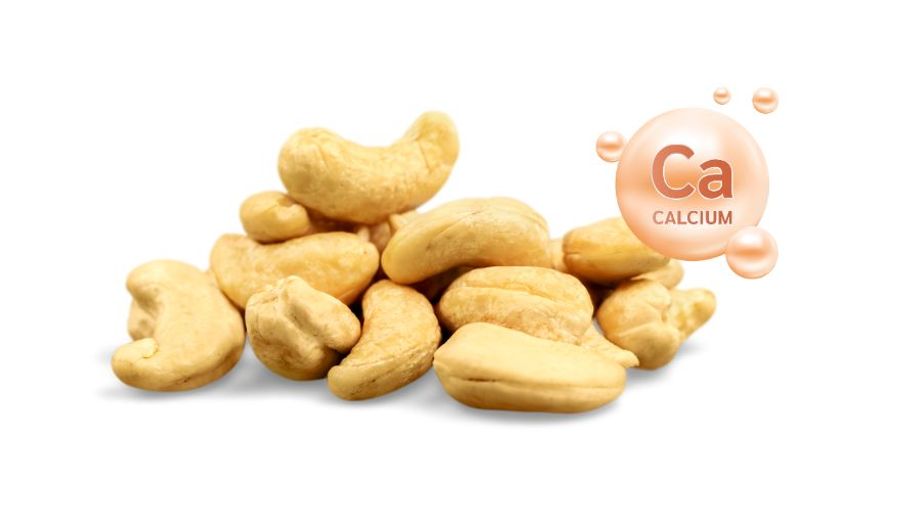
Mục lục
Cashews are good for human health because they contain many unsaturated fatty acids, vitamins, and minerals. These nutrients all play an important role in supporting blood function and the immune system while helping to prevent some cardiovascular diseases and kidney stones. Surely you also wonder whether eating cashews can provide enough calcium for the body? Let's find out with us what calcium cashews contain and how much.
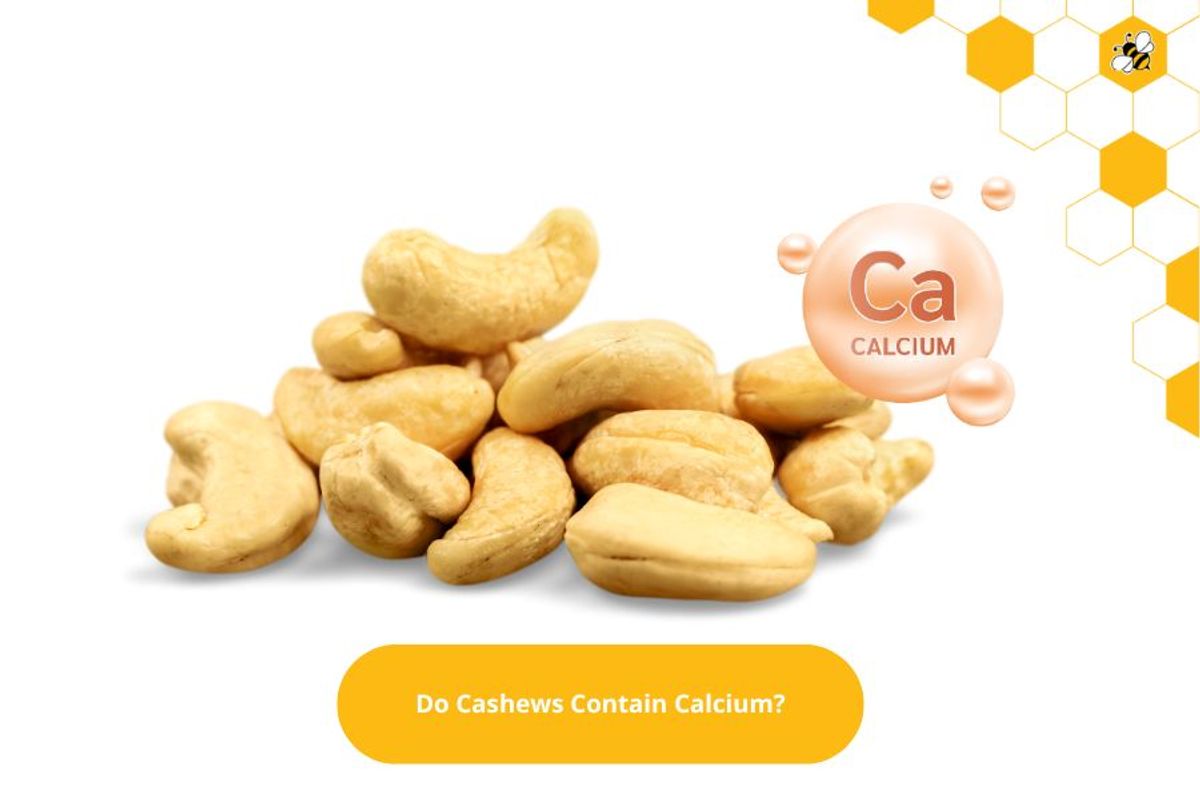
Do Cashews Contain Calcium? How Much Calcium Is In Cashews
Cashews contain some calcium, however, they are not as rich a source of calcium as some other foods. Here is information about the nutritional composition of cashews:
Energy: 100 grams of cashews provide about 605 Kcal.
Protein: Cashews contain about 18.4 grams of protein.
Glucid: There are about 28.7 grams of carbohydrates in cashews.
Lipids: Cashews contain about 46.3 grams of lipids.
Fiber: There are only about 0.6 grams of fiber in cashews.
Vitamins: Cashews provide vitamin E (0.9 mg), vitamin K (34.1 mg) and vitamin B6 (0.417 mg).
Minerals: In 100 grams of cashews, there are about 28 mg of calcium, 12 mg of sodium, 660 mg of potassium, 292 mg of magnesium, and 25 mcg of folate.
Although cashews are not a major source of calcium, they still have health benefits.
Energy: 100 grams of cashews provide about 605 Kcal.
Protein: Cashews contain about 18.4 grams of protein.
Glucid: There are about 28.7 grams of carbohydrates in cashews.
Lipids: Cashews contain about 46.3 grams of lipids.
Fiber: There are only about 0.6 grams of fiber in cashews.
Vitamins: Cashews provide vitamin E (0.9 mg), vitamin K (34.1 mg) and vitamin B6 (0.417 mg).
Minerals: In 100 grams of cashews, there are about 28 mg of calcium, 12 mg of sodium, 660 mg of potassium, 292 mg of magnesium, and 25 mcg of folate.
Although cashews are not a major source of calcium, they still have health benefits.
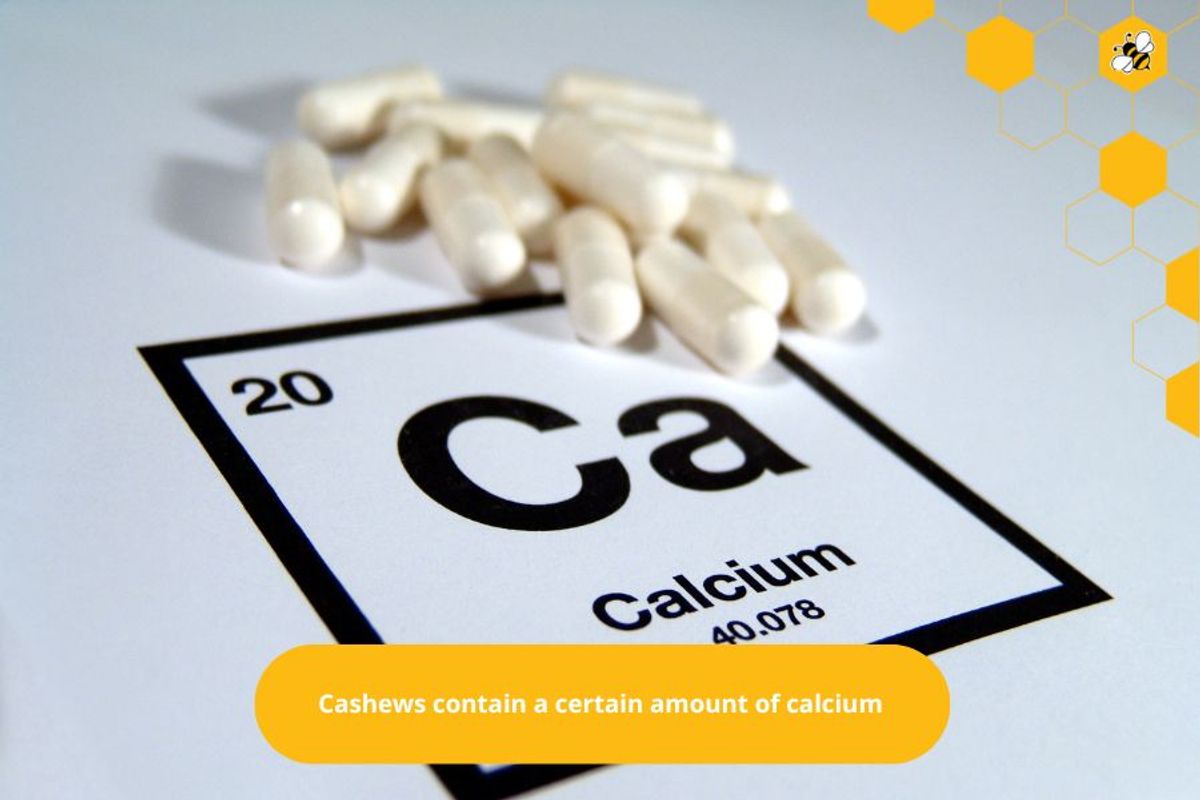
Cashews are rich in other nutrients such as unsaturated fatty acids, vitamins, and minerals, which help support blood and immune function while reducing the risk of cardiovascular disease and kidney stones. In addition, cashews are also a good source of magnesium, which plays an important role in more than 300 enzyme reactions in the body. Magnesium is also involved in muscle relaxation, neuromuscular transmission, and activity. Magnesium deficiency is common in older adults and is associated with insulin resistance, metabolic syndrome, cardiovascular disease, and osteoporosis. Some studies have found that high calcium intake without adequate magnesium may increase the risk of arterial calcification and cardiovascular disease as well as kidney stones. Therefore, adding cashews to your daily menu can benefit your health.
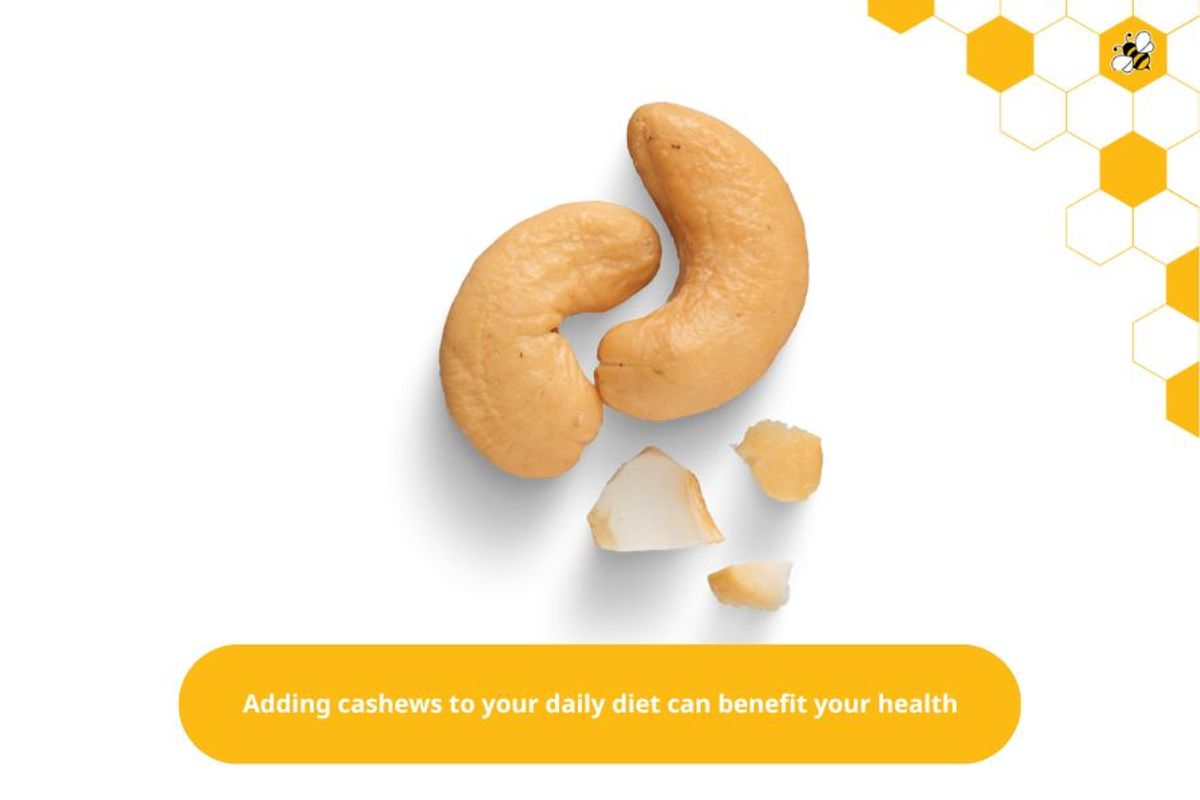
What is calcium?
Calcium is one of the minerals that play a vital role in the human body. The effects of calcium on the body:
Strong bones and teeth: Calcium combined with phosphorus is the basic component of bones and teeth, helping them become strong. 99% of calcium exists in bones, teeth, and nails.
Strong bones and teeth: Calcium combined with phosphorus is the basic component of bones and teeth, helping them become strong. 99% of calcium exists in bones, teeth, and nails.
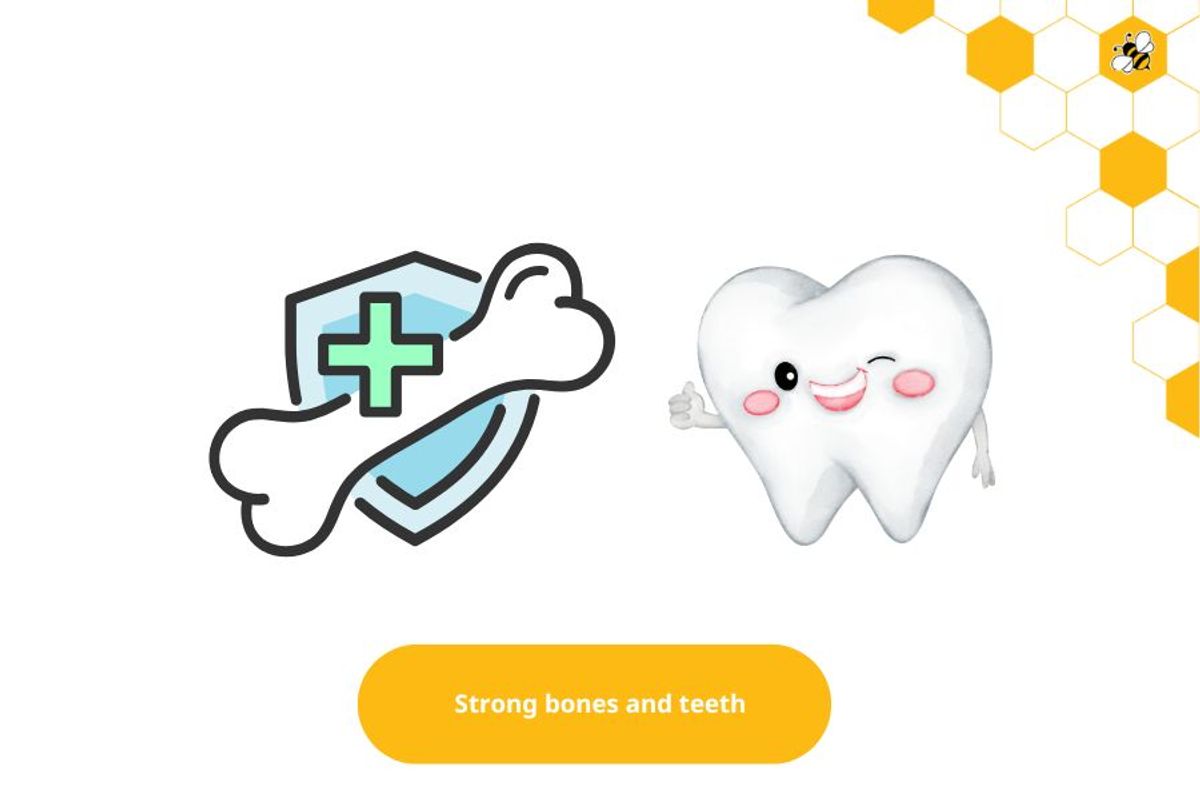
Cardiac function: Calcium is essential for heart function. If the body lacks calcium for a long time, the heart muscle will contract weakly, making it easy to get tired and sweaty.
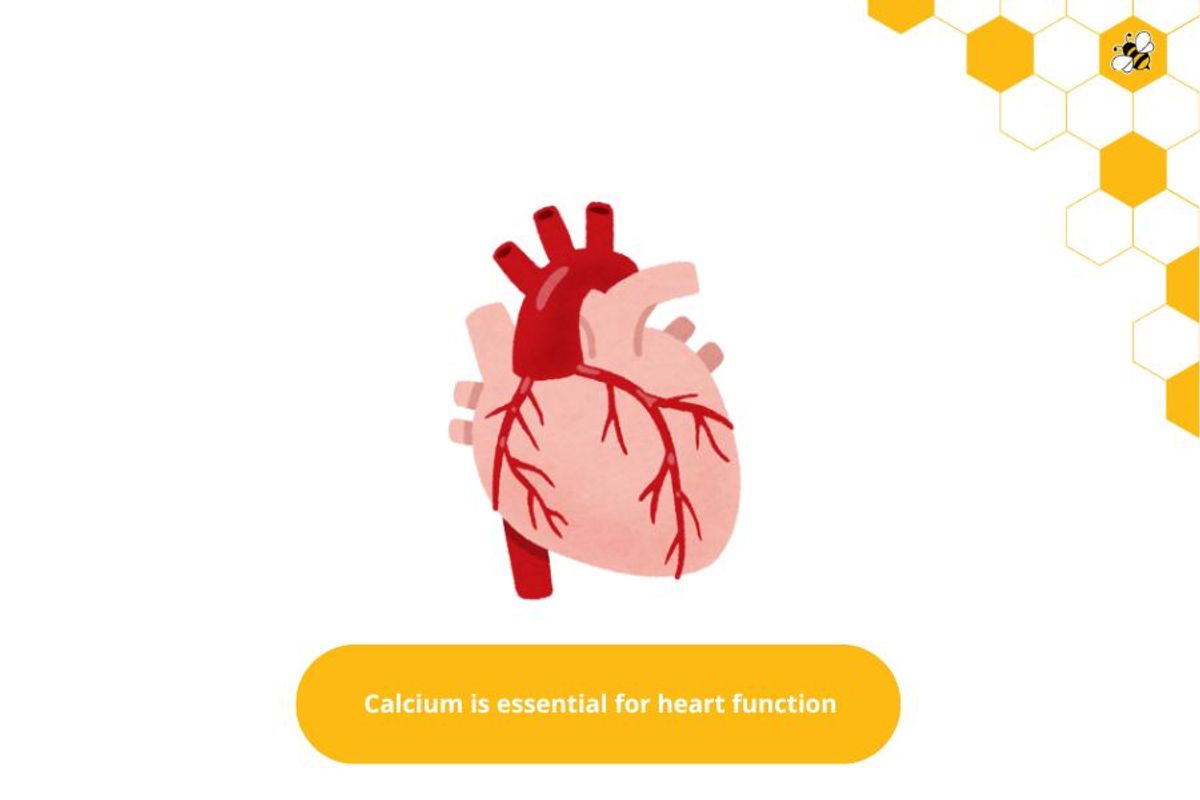
Blood clotting: Calcium participates in blood clotting by reducing the leakage of blood into capillaries.
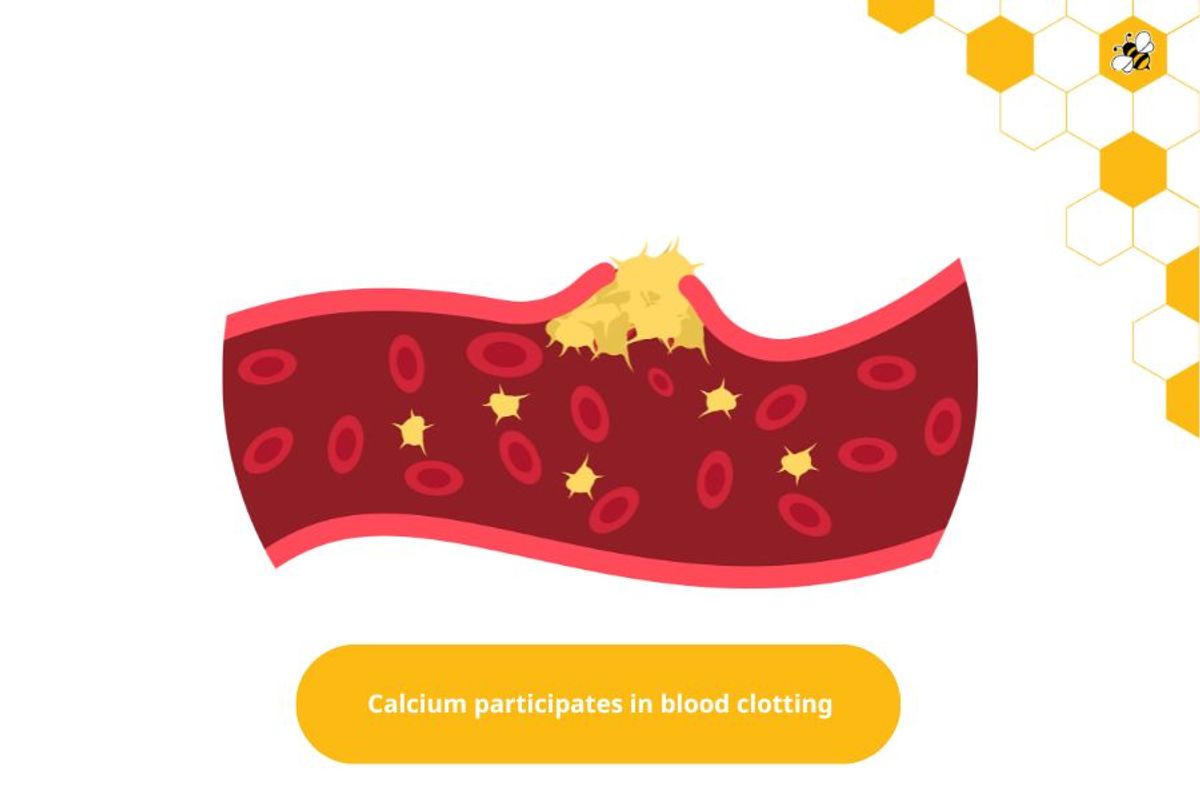
Nervous system: Calcium plays an important role in the nervous system. Calcium deficiency can easily lead to nervous breakdown, poor memory, mental instability, and headaches.
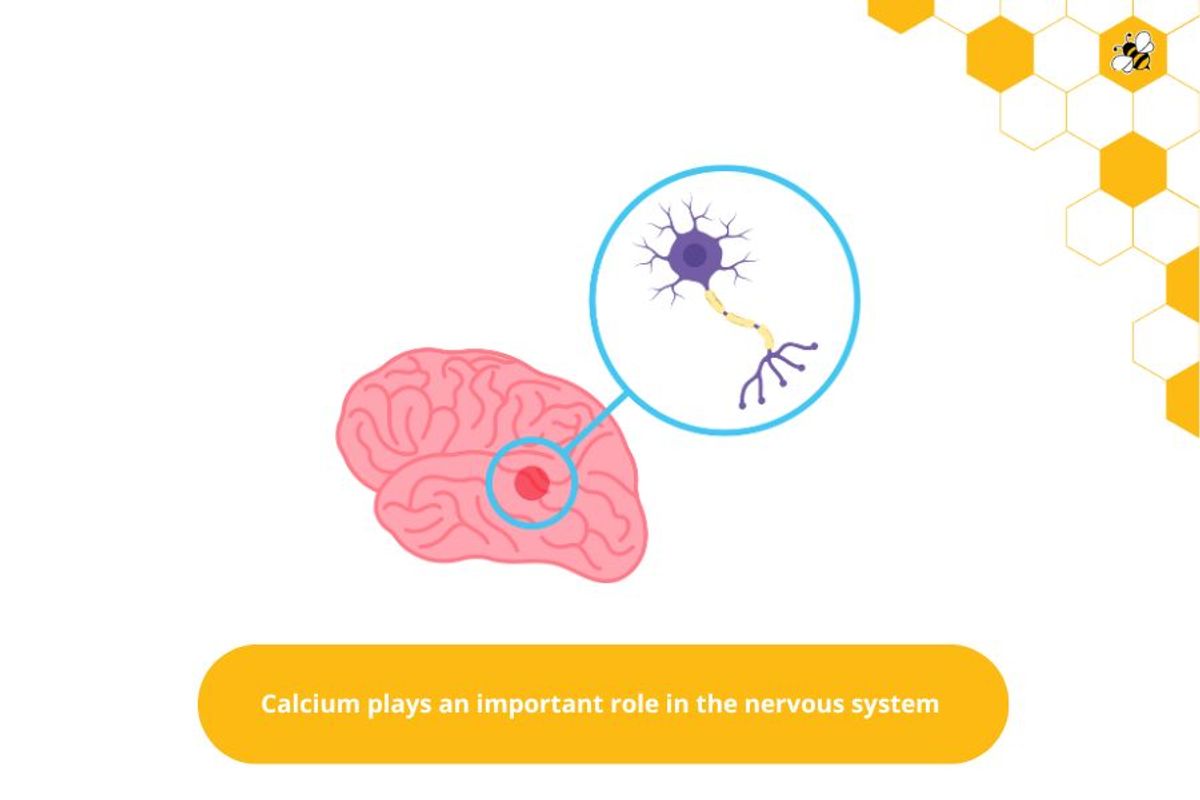
Children and pregnant women: Calcium helps children grow taller, strengthens immunity, and kills disease-causing bacteria. For pregnant women, calcium is also very important to support fetal development.

The body's calcium needs will be determined based on the correlation with phosphorus. Below are some recommendations for calcium needs according to age and physiological status:
Children (months):
Under 6 months: 300 mg/day
Children from 6 to 11 months: 400 mg/day
Infants (years):
1 to 3 years: 500 mg/day
4 to 6 years: 600 mg/day
6 to 9 years: 700 mg/day
Adolescent males and females (10 to 18 years): 1000 mg/day
Adult males and females (19 to 49 years):
700 mg/day (19 to 49 years)
1000 mg/day (50 years and older)
Pregnant women: 1000 mg/day
Breastfeeding women: 1000 mg/day.
Children (months):
Under 6 months: 300 mg/day
Children from 6 to 11 months: 400 mg/day
Infants (years):
1 to 3 years: 500 mg/day
4 to 6 years: 600 mg/day
6 to 9 years: 700 mg/day
Adolescent males and females (10 to 18 years): 1000 mg/day
Adult males and females (19 to 49 years):
700 mg/day (19 to 49 years)
1000 mg/day (50 years and older)
Pregnant women: 1000 mg/day
Breastfeeding women: 1000 mg/day.
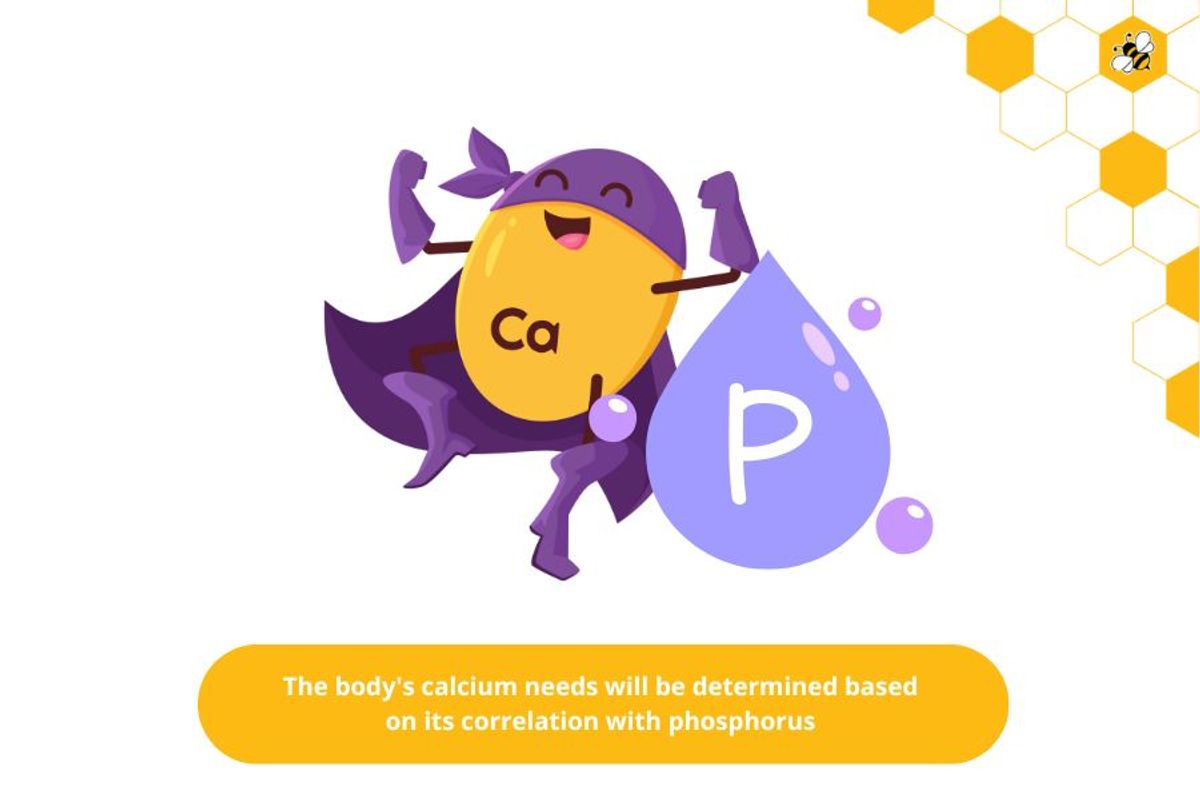
The effects of calcium on the body
Calcium is one of the minerals that play a vital role in the human body. In the body, calcium accounts for 1.5 - 2% of the human body weight, and 99% of calcium exists in bones, teeth, and nails. Only 1% of calcium exists in the blood and in cell tissue.
The role of calcium in the body:
Bones and teeth: Calcium combined with phosphorus is the basic structural component of bones and teeth, making them strong.
Neurological activity: Calcium is necessary for neuromuscular activity.
Heart activity: Calcium helps the heart muscle to function strongly. Prolonged calcium deficiency can cause the heart muscle to contract weakly, making the body tired and sweaty.
Cell metabolism and blood clotting: Calcium plays an important role in these processes.
The role of calcium in the body:
Bones and teeth: Calcium combined with phosphorus is the basic structural component of bones and teeth, making them strong.
Neurological activity: Calcium is necessary for neuromuscular activity.
Heart activity: Calcium helps the heart muscle to function strongly. Prolonged calcium deficiency can cause the heart muscle to contract weakly, making the body tired and sweaty.
Cell metabolism and blood clotting: Calcium plays an important role in these processes.

How to eat cashews to supplement the right amount of calcium
To supplement the right amount of calcium, you can combine cashews with other calcium-rich foods. Here are some dishes that combine cashews to provide the right amount of calcium:
Milk and dairy products: Milk, yogurt, cheese, and butter are rich in calcium. Add these foods to your daily diet.
Milk and dairy products: Milk, yogurt, cheese, and butter are rich in calcium. Add these foods to your daily diet.

Green vegetables: Collard greens, spinach, cabbage, bok choy, and watercress are all good sources of calcium. Add them to salads or baked goods.
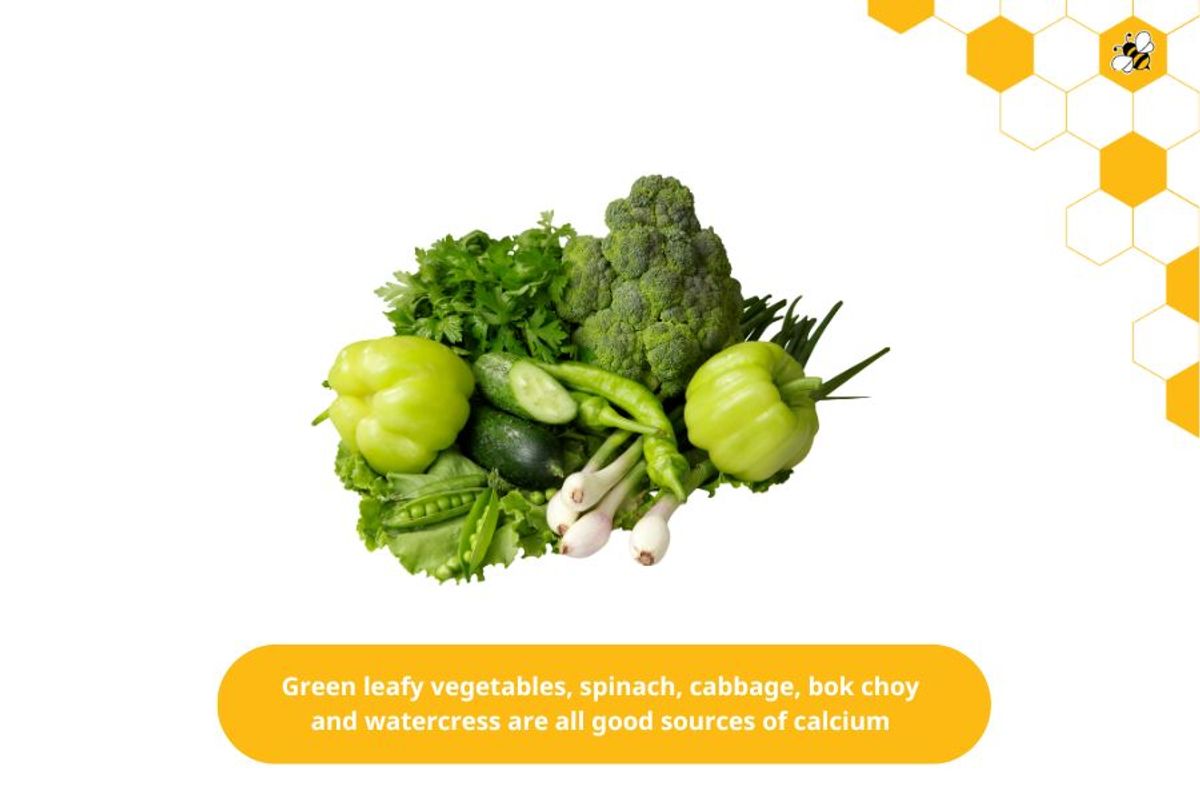
Seeds and nuts: In addition to cashews, flax seeds, chia seeds, and sunflower seeds also contain calcium. You can add them to your breakfast or dessert.
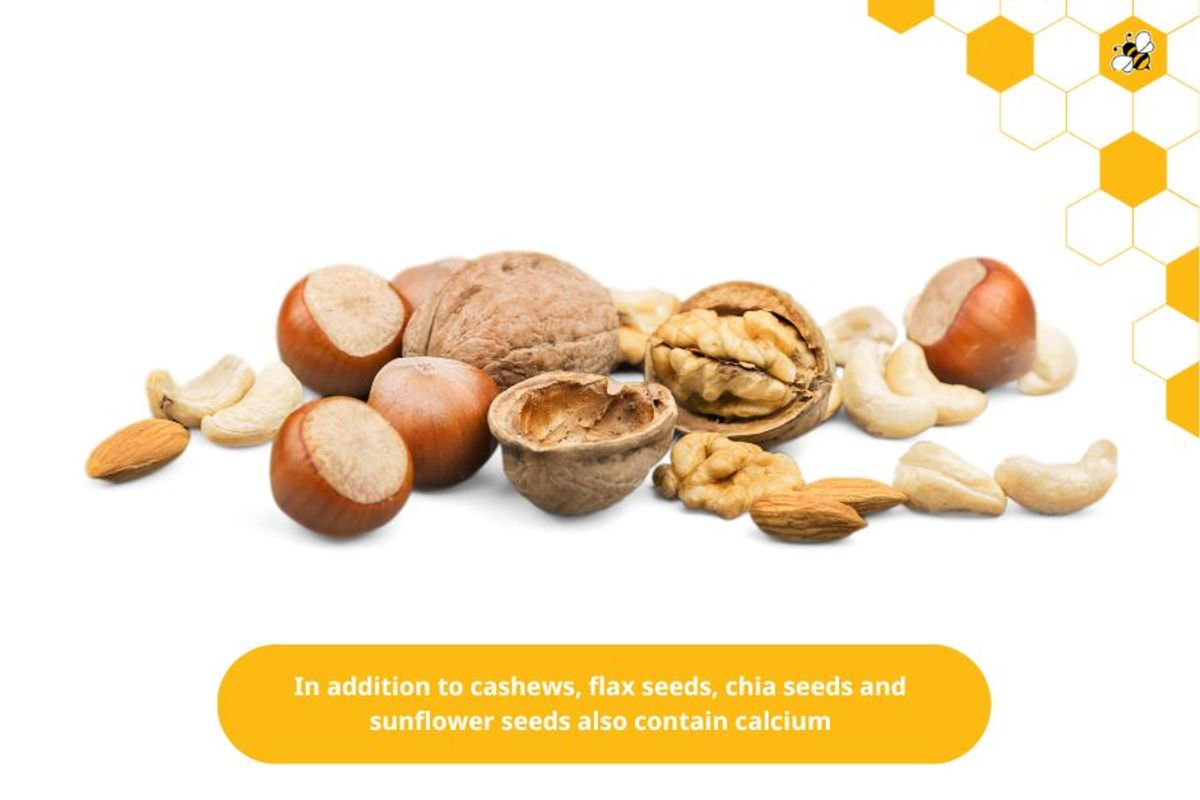
Fish and seafood: Salmon, sardines, and tuna are good sources of calcium. Eat these fish often.
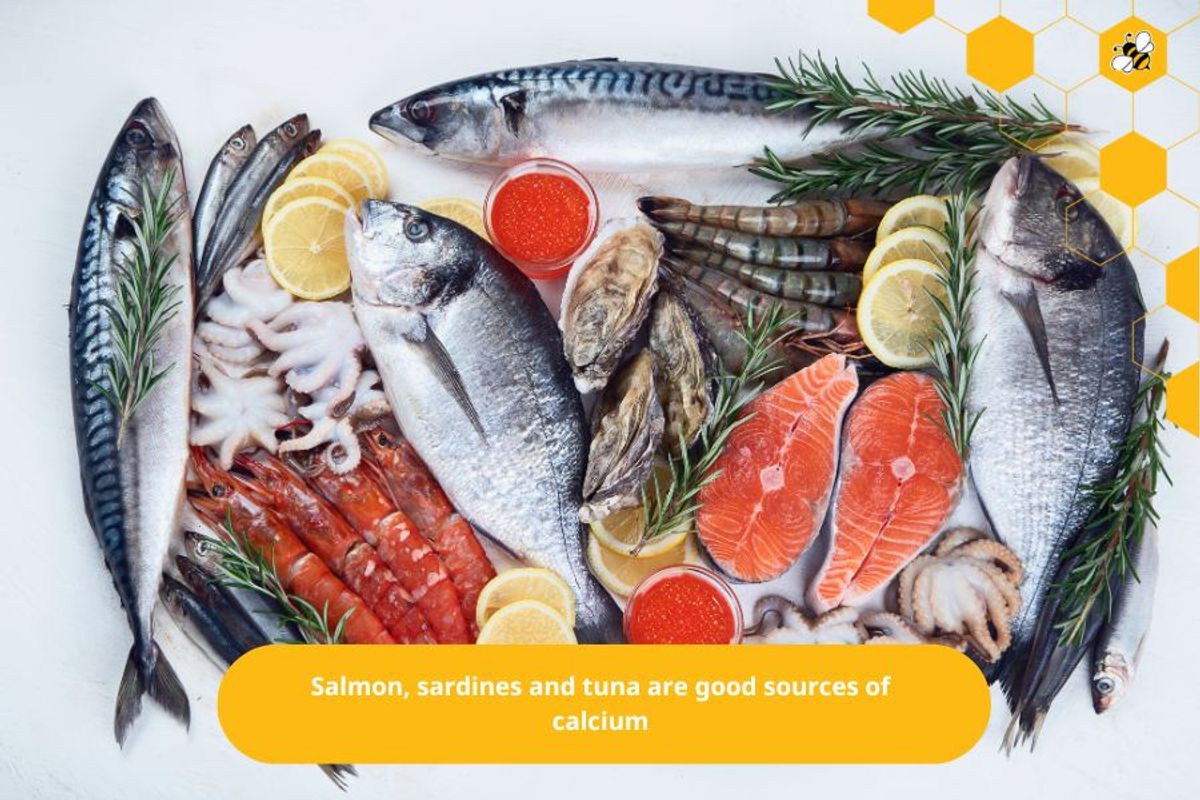
Calcium-Rich Foods: If you feel you need more calcium, consider taking calcium-rich foods like calcium tablets or micronutrient tablets.
While cashews are not as rich a source of calcium as some other nuts, you can still combine them with other foods to supplement your body with calcium. Here are some ways you can combine cashews to provide the right amount of calcium:
Cashews and Yogurt: Combining cashews with yogurt is a good way to supplement calcium. You can add cashews to yogurt or make a cashew and yogurt smoothie to enjoy.
Cashews and Salads: Add cashews to salads with your greens, tomatoes, cucumbers, and other vegetables to increase the calcium content. Cashews will make the salad more delicious and nutritious.
Cashews and Desserts: You can add cashews to desserts like cakes, cookies, or ice cream to add flavor and provide calcium.
Cashews and Breakfast Cereal: When you eat your breakfast cereal, add a handful of cashews to boost the nutritional value and calcium.
Cashew and chia seed smoothie: Adding cashews and chia seeds to your smoothie is a great way to add calcium. Chia seeds contain calcium and together with cashews, you will have a nutritious breakfast.
Cashew and green salad: Add cashews to your smoothie. You can create a delicious and calcium-rich meal.
Cashew cereal: When you eat your breakfast cereal, add cashews to your smoothie to boost the calcium. You can combine it with yogurt or nut milk for a delicious and nutritious meal.
Cashew and sesame seed cake: If you love baking, try adding cashews and sesame seeds to bread, cookies, or cakes. This is a delicious way to add calcium.
While cashews are not as rich a source of calcium as some other nuts, you can still combine them with other foods to supplement your body with calcium. Here are some ways you can combine cashews to provide the right amount of calcium:
Cashews and Yogurt: Combining cashews with yogurt is a good way to supplement calcium. You can add cashews to yogurt or make a cashew and yogurt smoothie to enjoy.
Cashews and Salads: Add cashews to salads with your greens, tomatoes, cucumbers, and other vegetables to increase the calcium content. Cashews will make the salad more delicious and nutritious.
Cashews and Desserts: You can add cashews to desserts like cakes, cookies, or ice cream to add flavor and provide calcium.
Cashews and Breakfast Cereal: When you eat your breakfast cereal, add a handful of cashews to boost the nutritional value and calcium.
Cashew and chia seed smoothie: Adding cashews and chia seeds to your smoothie is a great way to add calcium. Chia seeds contain calcium and together with cashews, you will have a nutritious breakfast.
Cashew and green salad: Add cashews to your smoothie. You can create a delicious and calcium-rich meal.
Cashew cereal: When you eat your breakfast cereal, add cashews to your smoothie to boost the calcium. You can combine it with yogurt or nut milk for a delicious and nutritious meal.
Cashew and sesame seed cake: If you love baking, try adding cashews and sesame seeds to bread, cookies, or cakes. This is a delicious way to add calcium.

Remember to maintain a balanced and varied diet to ensure you get enough calcium and other nutrients.
Summary
Although cashews are not as rich a source of calcium as other nuts, they still provide many other nutrients that can help support your health. Although they do not contain a large amount of calcium, cashews can still be part of a varied diet and provide a variety of benefits. Combine cashews with other foods to ensure you get enough calcium for your body.